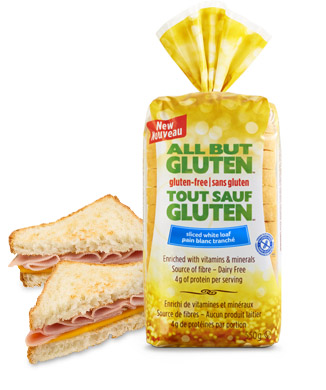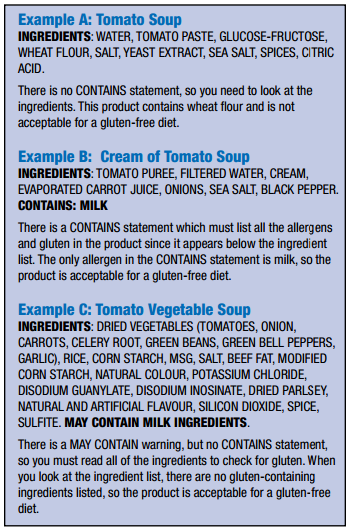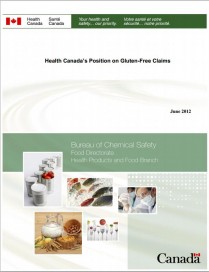Hello All,
There is a general public concern as the Corona Virus (COVID-19) has been detected in Manitoba. Now that it is closer to home, we understand there may be questions on how it will impact those diagnosed with Celiac Disease. The Manitoba Chapter of the Canadian Celiac Association is concerned about the health, safety and well-being of members, volunteers, and supporters in our community. The Manitoba Chapter’s Board, at their recent meeting, discussed contingency plans for the upcoming planned events as well as Celiac Awareness Month.
In response to the situation, the most up-to-date information and/or statements from the National Canadian Celiac Association has been assembled. Also included are statements from Celiac Disease experts that have been compiled for you, which summarizes the impact of the virus on those living with Celiac Disease. Also included are recommended websites and a summary of recommendations to keep oneself safe during this time.
THE MOST UP TO DATE STATEMENTS PROVIDED BY THE NATIONAL CANADIAN CELIAC ASSOCIATION CAN BE FOUND HERE:
- Celiac Disease and Corona Virus (COVID-19)
DECEMBER 2020 UPDATE
PAC statement on COVID 19 Vaccination
A vaccine has recently been approved in Canada for COVID-19 and we anticipate more vaccines will be available in the future. Our celiac community is asking for guidance of vaccination for COVID-19. At the beginning of the Covid-19 pandemic, there was a concern that people with celiac disease might be at increased risk of contracting COVID-19 and had severe outcomes from the infection, given prior studies suggesting increased risks from pneumonia and viral infections. Thus far, we have learned from an international large study1 and celiac registry2 that individuals with celiac disease are not more likely to contract COVID-19 or to have adverse outcomes from COVID-19 infection compared to the non-celiac population. However, we have seen the devastating effects of COVID-19 in the Canadian and worldwide population, and therefore, mass vaccination is crucial to provide immunity against this virus. We recommend that people with celiac disease receive the COVID-19 vaccine approved according to their provincially determined prioritization schedules. Having a diagnosis of celiac disease should not affect the efficacy of the vaccine and should not be associated with any added adverse outcome from vaccination. It is important to clarify that celiac disease is not considered an allergy, and therefore, there is no anticipated need to take any additional precaution when proceeding with vaccination.
1- ZhenJ et al, CGH 2020
2- International ISECURE celiac registry: https://covidceliac.org/home
NOVEMBER 2020 UPDATE
COVID-19 Celiac Study Released – Canadian Celiac Association
MARCH 2020 STATEMENT AND UPDATE — BACKGROUND INFORMATION ON COVID-19 AND CELIAC DISEASE
- Information from the National Canadian Celiac Association Web Page
”Patients with only celiac are not immunocompromised, unless they are taking medications for other medical conditions which are immunosuppressive. Like everyone, they should exercise careful infection control practices, including washing hands with soap and water frequently, and avoid touching the eyes, nose and mouth. Patients with other comorbidities such as diabetes may be at higher risk of severe infection and should take additional precautions.”
- A Celiac disease expert Dr. Alessio Fasano, chief of Pediatric Gastroenterology and Nutrition at Mass General Hospital for Children, has provided some information also.
To watch:

Click the link below or copy the link below and paste into your browser. https://m.youtube.com/watch?v=3RzvCeObFME
- Statement from the Celiac Disease Centre at Columbia University Medical Center

- The Celiac Project Has provided a pod cast to help clear up some misconceptions about the virus and how it impacts those with Celiac Disease

To Listen:
Click the link or alternatively copy the link below and paste into your browser
http://celiacprojectpodcast.libsyn.com/
Other General Coronavirus (COVID-19) Sources available:
- Centre of Disease control
https://www.cdc.gov/coronavirus/2019-ncov/index.html
- Health Canada
https://www.canada.ca/en/public-health/services/diseases/coronavirus-disease-covid-19.html#faq
- Manitoba Government Website
Recommendations:
From the Manitoba Government Website:
Strategies for all Manitobans:
- minimizing prolonged (more than 10 minutes), close (less than two meters/ six feet) contact
between other individuals in public,
- avoiding greetings that involve touching such as handshakes,
- disinfecting frequently used surfaces,
- following public health advice related to self-monitoring and self-isolation if you have travelled or have been exposed to someone ill with the virus, and
- considering avoiding travel, crowded places and events, especially if you are at higher risk (e.g. seniors and those with underlying medical conditions)
How can I reduce my risk of infection?
Good hand hygiene provides significant protection from viral respiratory illnesses.
People are encouraged to take common prevention measures, including regular handwashing with soap and warm water for at least 15 seconds. Make sure to dry your hands thoroughly. Or, you can use an alcohol-based hand cleanser if your hands are not visibly dirty. It is especially important to clean your hands:
- after coughing or sneezing
- when caring for a sick person
- before, during and after you prepare food
- before eating
- after toilet use
- when hands are visibly dirty
You should also cover your mouth and nose with a tissue when coughing or sneezing, or you can cough or sneeze into your sleeve. Throw used tissues in the garbage and immediately wash your hands, or use an alcohol-based hand cleanser.
Avoid close contact (within 2 meters/6 feet) with anyone showing symptoms of a respiratory illness, such as coughing or sneezing.
Children and adolescents should avoid sharing food/drinks (e.g. sippy cups and water bottles), musical instruments or other things that have been in a person’s mouth (e.g., soothers).
Please stay safe and healthy during this time
We shall be updating individuals on this webpage, our Facebook Page, Celi-yak Newsletter and as well our email list.
Website: www.celiac.ca
Facebook: https://www.facebook.com/CCAMBChapter/







